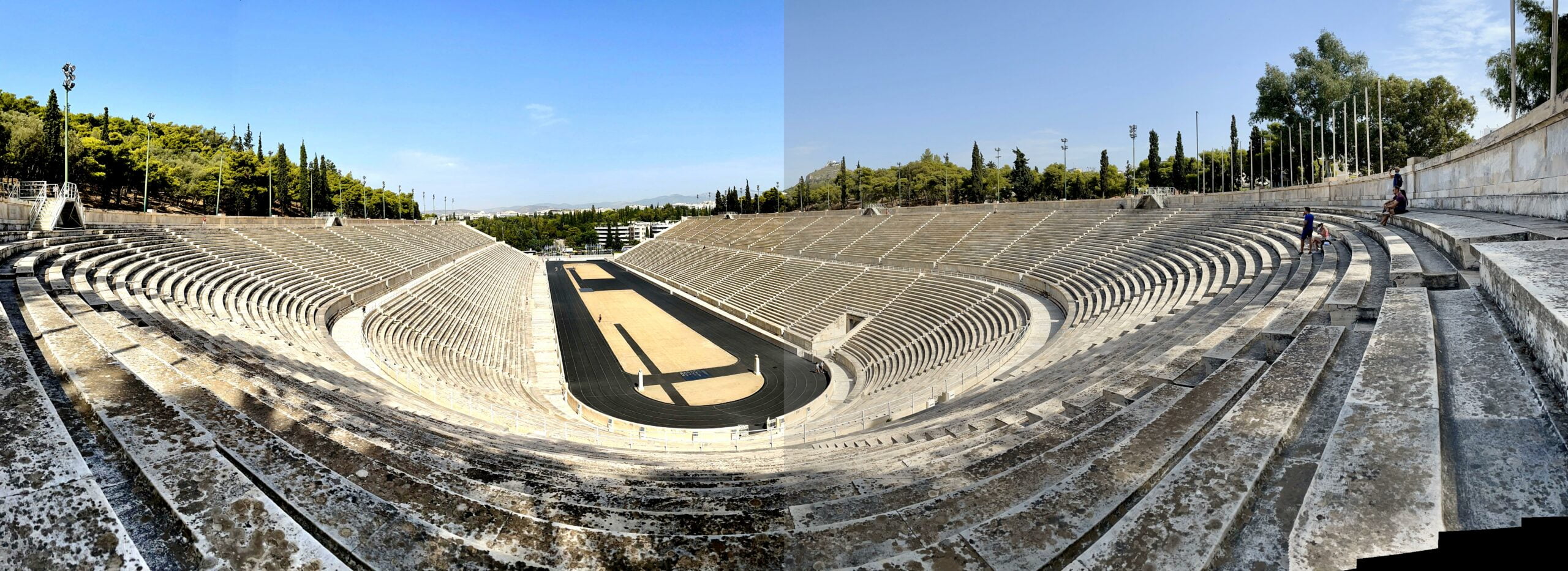Welcome to the fascinating world of ancient Athens! In this article, we will take a deep dive into the rich history and captivating tales of this iconic city-state. Prepare to uncover the hidden stories and remarkable insights that have shaped the ancient metropolis, as we reveal ten intriguing facts about the ancient Athens. From its political powerhouses to its cultural achievements, join me on this journey as we unveil the secrets of this extraordinary civilization.
10 Facts About Ancient Athens
Ancient Athens, the historic city and capital of Greece, holds a significant place in world history. Let’s peel back the layers of time and explore the ten fascinating facts that make this ancient metropolis so captivating.
1. Birthplace of Democracy
Athens is renowned as the birthplace of democracy, where common male citizens had the power to banish politicians. This revolutionary system of government shaped the course of history, empowering the people and fostering a sense of civic engagement.
“At the heart of Ancient Athens lies the birth of democracy, where the voice of the people carried the power to shape the political landscape.”
2. Intellectual and Artistic Hub
Many of Classical civilization’s intellectual and artistic ideas originated within the vibrant walls of Athens. Philosophers such as Socrates, Plato, and Antisthenes walked its streets, while writers like Aspasia contributed to its cultural legacy. Athens was a melting pot of innovation and creativity.
3. Uniquely Athens
Athens stood out from other cities in ancient Greece with its distinct characteristics. Its democratic governance, architectural marvels, and contributions to philosophy set Athens apart as a city-state that defied convention.
“In a world of city-states, Athens stood as a unique beacon, intertwining democracy, philosophy, and architectural grandeur.”
4. Strategic Location
Nestled among mountains and protected by a formidable naval fleet, Athens boasted a strategic location that made it a challenging city to invade and go to war with. This geographical advantage safeguarded its riches and allowed its civilization to flourish.
5. Relaxed Lifestyle
Ancient Athenians embraced a relaxed lifestyle. In bustling marketplaces like the Agora, they could engage in lively debates, exchange ideas, and pursue intellectual inquiry. As the sun set, they visited symposiums, where they enjoyed spirited discussions and wine-fueled revelry.
6. Foundation of a Small Community
Around 1700-1100 BCE, Athens was not the sprawling metropolis we visualize today. Instead, it began as a modest community that gradually grew into the magnificent city of antiquity we now admire.
7. Olympic Game Hosting
While Athens is often associated with the ancient Olympic Games, it’s interesting to note that these prestigious events were not held in the city itself. Olympia, located in the Peloponnese region, served as the venue for these famous athletic contests.
8. City-State of Many
Ancient Greece comprised several small city-states, each with its own unique characteristics. Athens stood proudly among them, exemplifying the democratic principles and intellectual achievements for which it is celebrated.
9. A Living Legacy
Spanning several thousand years, from about 6,000 BC to about 322 BCE, ancient Athens left an indelible mark on history. Its contributions to government, philosophy, and art continue to inspire and shape the modern world.
“Even today, the legacy of ancient Athens reverberates through time, reminding us of the profound impact of democracy, intellectual pursuits, and cultural achievements.”
10. A Cradle of Civilization
As the first ray of dawn illuminates Athens, it symbolizes the birthplace of democracy and the cradle of Western civilization. This city’s enduring spirit, monumental achievements, and rich history continue to captivate our imaginations.
“Imagine walking the streets of ancient Athens, where history comes alive and whispers its tales of wisdom and enlightenment.”
Ancient Athens remains a treasure trove of wonders, inviting us to explore its depths. From its democratic ideals to its vibrant intellectual scene, this legendary city stands as a testament to humanity’s limitless potential.
Athens has a rich and fascinating history that spans thousands of years. As the birthplace of democracy, it has played a critical role in shaping the modern world. From its ancient ruins to its bustling city streets, there is so much to discover about this vibrant metropolis. If you’re curious to learn more about Athens and uncover some intriguing facts, click here for a fact about Athens. You’ll be amazed at the captivating stories and secrets that this incredible city holds.
A Glimpse into the Daily Life of an Ancient Athenian
[youtube v=”ar8S6virCwM”]
In 427 BCE, the ancient city-state of Athens was embroiled in the Peloponnesian War, a fierce conflict between Athens and its rival, Sparta. As the Athenians faced the daunting Spartan army, they retreated within the walls of their city and relied on their superior naval fleet for provisions. Despite the hardships caused by cramped living conditions and a recent plague, life in Athens continued.
In the heart of Athens, we meet Archaeas and Dexalea, a couple whose lives reflect the contrasting realities of their society. Archaeas, a painter of high-class pottery, enjoys a relatively affluent lifestyle and takes a keen interest in the city’s affairs. Dexalea, however, is confined to domestic duties and cannot participate in politics or own property.
Their gratitude for their three surviving children is tempered by the fact that daughters were seen as a financial burden, requiring dowries to secure suitable marriages. Nevertheless, Archaeas is confident that his wealth will enable him to find good matches for his daughters without going bankrupt.
Like many Athenian families, Archaeas and Dexalea own slaves, who originate from Thrace and were captured in war. These slaves, particularly Thraso, play a crucial role in managing the household and raising the children. Additionally, a pedagogos named Phylon oversees the education of their son, imparting reading and writing skills.
With an important meeting of the ecclesia, the assembly of citizens, taking place at dawn, Archaeas begins his day early. He performs a ritual at a small shrine in his courtyard on behalf of his household before heading to the agora, the civic and commercial hub of the city. Here, he encounters a bustling square filled with fellow citizens engaged in various activities.
Attached to the central monument in the agora is a notice board that displays the agenda for the meeting. On this particular day, the sole item of discussion is the fate of the people of Mytilene, a city on the island of Lesbos that revolted against Athenian rule. The citizens gathered on the hill known as the Pnyx, a setting that vividly illustrates the tightly packed nature of the crowd.
Amidst the gathering of around five thousand citizens, the meeting commences. Each citizen has the opportunity to voice their opinions, with some advocating mercy while others seek vengeance. Ultimately, a motion is proposed to execute all the Mytilenians and enslave their women and children for their perceived betrayal of Athenian allies during wartime.
Following the meeting, Archaeas returns to the agora to purchase essential items, where he joins others in heated debates over the outcome of the discussion. Not everyone is satisfied with the decision made.
Upon returning home, Archaeas shares the details of the debate with Dexalea, who expresses her view that killing both the innocent and guilty is harsh and counterproductive. Her perspective resonates with Archaeas, and he begins to question the resolution.
Later that night, Archaeas attends a symposium at a friend’s house where nine men gather to drink wine and discuss the meeting. Influenced by his wife’s compassion, Archaeas persuades his friends to reconsider their stance. The following day, the council announces an unprecedented second meeting, where the resolution to execute only the leaders of the revolt narrowly passes.
However, a problem arises. A ship with orders to carry out the initial resolution had already been dispatched, prompting another ship to set sail hastily to countermand the previous order. Athens finds itself in a race against time to uphold its democratic principles.
In this glimpse into the daily life of an ancient Athenian, we witness the complexities and dynamics of a society marked by contrasting social roles, political debates, and the struggle to balance justice with compassion.
“Amidst the bustling city of Athens, the lives of Archaeas and Dexalea shed light on the challenges and dilemmas faced by individuals in an ancient civilization.”
FAQ
Question 1: What are some significant aspects of Ancient Athens?
Answer 1: Ancient Athens is known for its contributions to philosophy, architecture, and government. It is considered the birthplace of democracy, where even common male citizens had the power to banish politicians. Athenians also led a relaxed lifestyle, spending their time at the Agora and attending evening symposiums.
Question 2: Why is Athens considered a significant chapter in world history?
Answer 2: Athens holds immense historical importance as the birthplace of democracy. The city’s strategic location made it challenging to invade and go to war with. Many intellectual and artistic ideas of Classical civilization originated in Athens, and famous Athenians, such as statesman Pericles, writer Aspasia, and philosophers like Socrates, Plato, and Antisthenes, made profound contributions to the world.
Question 3: When was Athens founded and how long did it exist?
Answer 3: Athens was founded as a small community around 1700-1100 BCE. The city-state spanned several thousand years, from about 6,000 BC to about 322 BCE.
Question 4: Were the ancient Olympic games held in Athens?
Answer 4: No, the ancient Olympic games were not held in Athens. They took place in Olympia, located in Peloponnese, a region in Greece.
Question 5: How was Athens different from other cities in ancient Greece?
Answer 5: Athens was highly untypical compared to other cities in ancient Greece. It stood out as the historic city and capital of Greece, paving the way for democracy and political innovation.
- Sept 31 Myth: Unveiling Calendar Secrets - March 18, 2025
- How Long & Till December 18, 2025: Accurate Countdown Guide - March 18, 2025
- Discover Japanese Artists: A Complete History - March 18, 2025
















